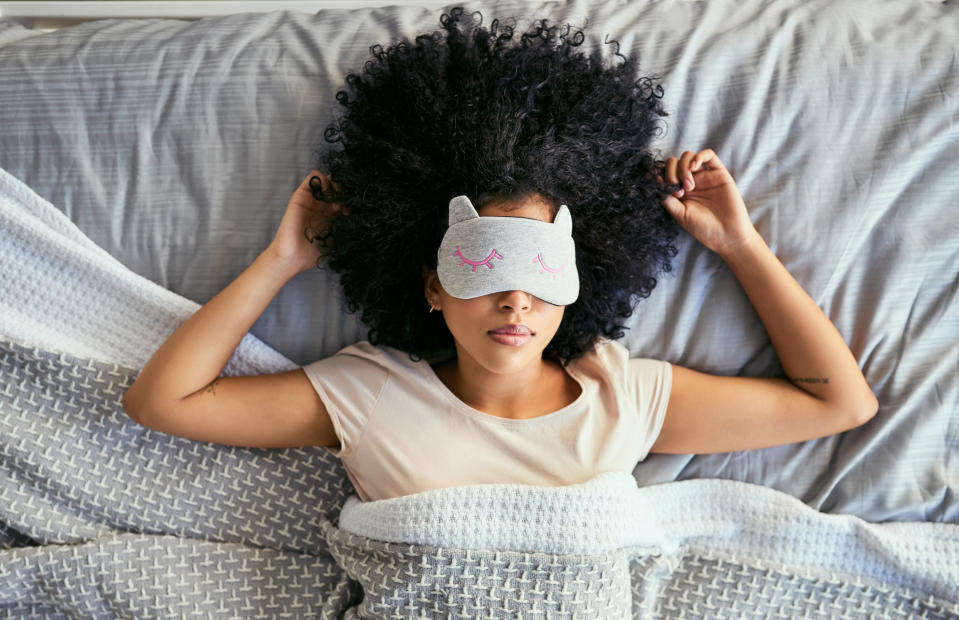Why are we dreaming about work all the time at the moment?

For Ellie Dix, who runs her own board game publishing company called The Dark Imp, dreaming about work rarely used to be a bad thing. In fact, she would sometimes dream up ideas for new games and wake up with a fully formed idea which she would go on to create. But this year, things have changed.
“Recently, the dreams haven't been quite so productive,” she says. “We've got a rush of orders on and I've had dreams of running along an assembly line of board games, like a never-ending treadmill. I've had dreams about creating games encrusted with diamonds — I have no intention of doing this — and then them getting lost in the post or delivered to the wrong person.”
It goes without saying that we are living through a time of heightened anxiety, and stress tends to go hand-in-hand with poor sleep. According to a survey of 2,254 people conducted by King’s College London earlier this year, nearly two-thirds (63%) said their sleep has been worse during the pandemic. The content and tone of our dreams is also being affected, with two in five people (38%) reporting having had more vivid dreams than usual.
READ MORE: How to stop being so distracted when working from home
We’re also remembering what we dream about more often. An ongoing study by the Lyon Neuroscience Research Center in France initiated in March found the coronavirus pandemic has caused a 35% increase in dream recall among participants, with respondents reporting 15% more negative dreams than usual.
And with all the changes to our work lives, including the shift to working from home and the threat of redundancy, it’s no wonder we’re having stressful dreams about our jobs.
Deirdre Barrett, a psychologist at Harvard Medical School, has been surveying people about their coronavirus dreams since March. She observed that most of the dreams people have about work are negative, such as losing a job or working under dangerous conditions. We’re also dreaming about bugs — as perhaps a physical manifestation of COVID-19 which we can’t actually see — and face masks.
“Dreaming is a process where our brains are trying to make sense of and process our experiences,” says Janine Eden-Riley, a therapist specialising in PTSD and the CEO of Thrive Future.
WATCH: How to negotiate a pay rise
“There is so much change in how we are living and working due to the pandemic that our brains are struggling to make sense of it. Human beings are structured to be defensive, as it is the basis of how we stay alive. Brains like familiarity, and when the routines around us change, the brain cannot easily assess the material it is taking in.”
Work is also a huge part of our identity and it is often what we spend most of our time doing, whether we like it or not. Therefore, our jobs are likely to feature relatively heavily in our dreams.
“People have put years of effort and work into building their careers, understanding the workplace culture, dynamics, etc,” explains Eden-Riley. “The global pandemic has turned much of this on its head. Any change like this also requires an identity shift, and that will cause people to wrestle with the process of change, including in their sleep.”
Although working from home means we’re cutting back on commuting, it’s also far harder to separate ourselves from our work. We’re working longer hours than we would in an office and we’re spending more time around our laptops, which makes it harder to mentally switch off.
READ MORE: How to help workers with seasonal affective disorder during the pandemic
Like many others, Dix has been working from home during the pandemic which she feels may be contributing to these stressful dreams. “I usually work from home anyway, but at the moment with lockdown, clearly I'm here all the time so there's definitely a temptation to work all the hours available. The lack of variety in my day has contributed, I expect,” she adds.
Obviously, very few people can control what they dream about. But there are steps you can take to reduce your stress levels and detach yourself from work, which may help.
“I would advise connecting with a really good friend who you can express your true feelings to,” Eden-Riley says. “Sharing feelings with someone you trust can help to put them into perspective and also make you feel less alone in the changes that are occurring.”
For others who are struggling, it may be helpful to think about underlying drivers of stress and its impact on sleep. Move your laptop out of your bedroom, turn your phone off and ignore your boss’ late-night emails, for the sake of your mental health.

 Yahoo Finance
Yahoo Finance 